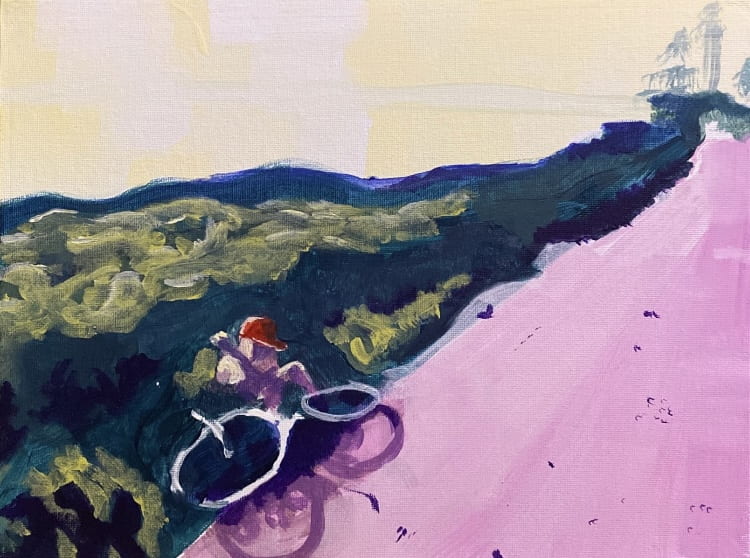My grandmother was a woman in the boldest sense of the word. She was fiery and strong, but also caring and selfless. She was Britney Spears CD’s playing in a little red car so old I didn’t think it would make it out of the driveway, but I liked to think it ran on her magic alone. She was breakfast in bed and Saturday morning cartoons I wasn’t allowed to watch at home. She was my North Star, promising me I could always find her by looking up at the sky. She was tough love; she taught me how to climb a tree but refused to help me get back down, claiming that one day she wouldn’t be here, and I’d need to be able to do things by myself.
I could have climbed up and down that tree a million times and I still wouldn’t be prepared for a life without her.
My grandmother never knew how to stay still, she spent most of her adult life moving from place to place, taking my grandfather and father with her. Together they bounced around from towns to islands to cities, never staying in one place for long. When I was nine years old, my grandmother decided it was time for her move again; she left the U.S. and returned home to Colombia.
I visited her the summer before my senior year of high school. She took me on a trip to San Andres, a tiny Colombian island in the Caribbean Sea. My grandparents had lived there with my father decades ago, and looking back, I think that my grandmother wanted me to understand the island through the way she had loved it. She showed me the beautiful attractions San Andres had to offer, but the things I remember most are the places from her past that meant something to her personally. Rusty playgrounds where she used to play with my father, restaurants.
She used to order food from when she was too tired to cook after work, empty swimming pools, and the cobblestone streets she biked with my father. Looking for the love she had left there decades before, passing through places she used to live, eat, sleep, work, and love; she was holding on to them like water in her hands. I didn’t understand it then, the way she was trying to hold on to the memories these places held — of my father, of her life, of everything it was before it wasn’t.
On the last night of our stay in San Andres, my grandparents and I took a stroll through the boardwalk, chatting with vendors, listening to the music coming from everywhere, and enjoying the breeze. We made our way to a broken-down pier struggling to stay above water, where we chose to take a seat for a few minutes before heading back to the hotel. We talked about many things that night, things that I wish I could remember now, but my memory has only been able to hold onto one particular conversation.
“What are you most afraid of?”, I asked.
We sat in silence for several seconds before my grandmother spoke, “Never being able to hug your father again.”
Not understanding, I brushed it off at the time, I thought that it was an irrational fear. Of course she would be able to hug him again, it would only be a few more years until the immigration system would allow them to see each other again.
There were a lot of things I didn’t understand that night, most importantly: mortality.
She passed away before she could hold him again, and maybe that’s something to be upset about. To kick and scream and cry over the unfairness of an unjust system that displaces families and forces them to spend over a decade without embracing each other. But my grandmother would have hated that. She could walk over glass and through fire with a smile on her face, she always chose to laugh her way through life, and she would want us to do the same in her absence. I know she’s laughing now, biking through the cobblestone streets of Heaven, waiting for the day when we’ll join her.
My father and I spend most of our nights looking up at the sky, searching for a sign from our eternal North Star. And sometimes, when he passes his glance from the sky to me, I know it’s her he sees.
Sofia Rodrigo ’24 is a staff writer
shincapierodrigo24@amherst.edu
Jacinta Smith ’25 is a staff artist
jsmith25@amherst.edu
